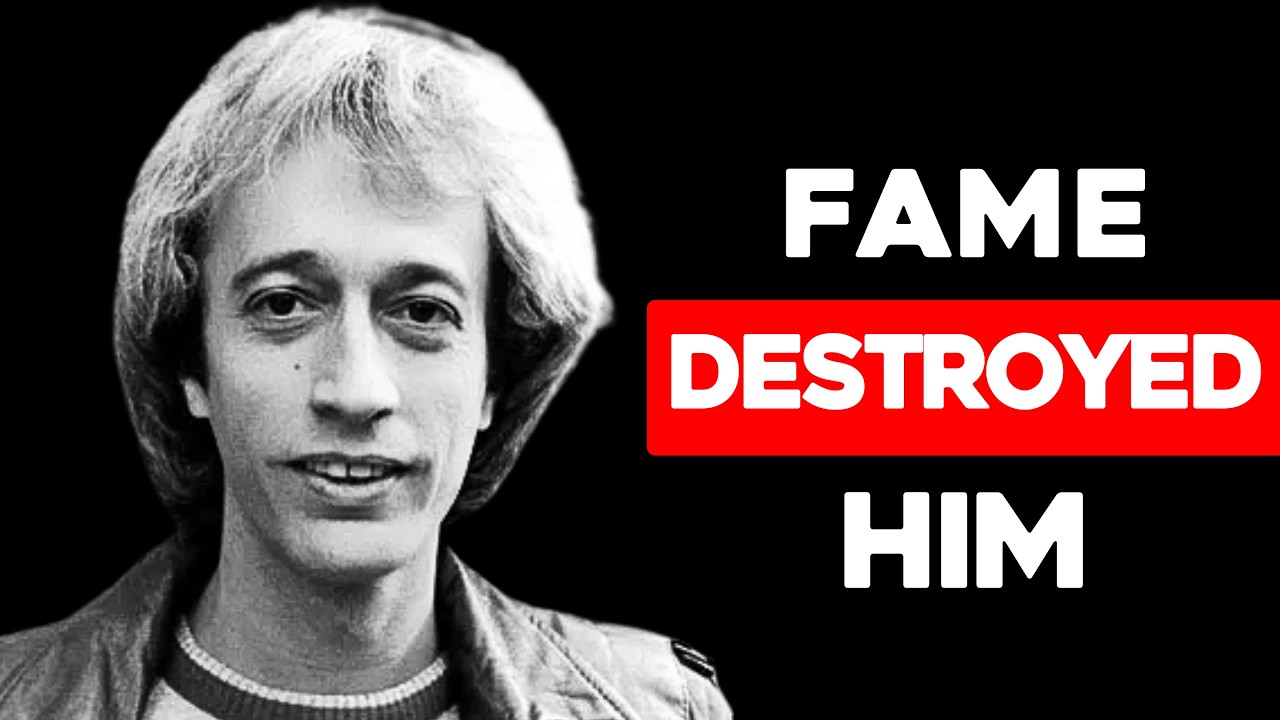
The Hidden Genius Behind the Bee Gees: The Remarkable Life and Legacy of Robin Gibb
In the golden haze of the music-drenched 1970s, as disco balls spun and dance floors pulsed with life, few voices were as haunting and distinctive as that of Robin Gibb. His shimmering tenor, filled with emotional resonance and unmatched clarity, was one of the pillars that upheld the global phenomenon known as the Bee Gees. Yet, behind the iconic harmonies and chart-topping hits lay a story far more intricate—a narrative of struggle, reinvention, artistic perfection, and enduring familial bonds.
Born on December 22, 1949, just 35 minutes before his twin brother Maurice, Robin Hugh Gibb entered the world on the Isle of Man. Music enveloped the Gibb household; the family, modest in means but rich in creativity, fostered what would eventually become one of popular music’s most influential legacies. Robin, even as a child, showed a voice laden with both power and vulnerability, foreshadowing the poignant performances he would later deliver.
The Gibb family’s journey took them from the British Isles to the sunlit streets of Brisbane, Australia, where the teenaged brothers performed at local clubs and even racetracks, gradually gaining attention. By the early 1960s, their group—now named the Bee Gees—began releasing original music. Robin’s first major lead came on “I Started a Joke,” a song where his tremulous and emotionally raw delivery gave the melancholic lyrics a timeless quality.
Their return to the UK in 1967 proved fateful. The Bee Gees’ unique blend of harmonies quickly caught the ears of the British music scene, then still reeling in the wake of The Beatles. Robin’s voice led hits like “Massachusetts” and “New York Mining Disaster 1941“, songs that revealed the soul of a young artist deeply in touch with the emotional undercurrents of the human experience. Although briefly departing the group to pursue a solo path, Robin’s return reinforced the creative bond he shared with his brothers, proving that the whole was indeed greater than the sum of its parts.
By 1977, their contributions to the Saturday Night Fever soundtrack redefined the Bee Gees as kings of disco. As Barry’s falsetto took center stage during this era, Robin’s voice remained the emotional bedrock, anchoring tracks like “How Deep Is Your Love” with sincerity and depth. The group’s incredible run—six consecutive number-one singles and over 200 million records sold—reflected not only mass appeal but artistic evolution, with Robin’s meticulous approach to songwriting and arranging consistently standing out.
Yet success did not shield Robin from personal trials. His first marriage ended under the strain of fame, and he faced personal battles with addiction, insomnia, and fluctuations in health. Through it all, his relationship with Maurice endured as his most consistent support system. The sudden loss of Maurice in 2003 was a devastating blow, prompting Robin to retire the Bee Gees name, stating that “to us, the Bee Gees was the three brothers.”
The later years of Robin’s life highlight a legacy that extended far beyond pop stardom. He immersed himself in environmental causes, received a CBE in 2002 for both his musical and humanitarian contributions, and collaborated with his son on classical projects—most notably the ambitious “Titanic Requiem.” Even as his health declined in the 2010s, culminating in a dual diagnosis of liver and colon cancer, he remained devoted to his craft, performing and writing until the very end.
Robin Gibb passed away on May 20, 2012, leaving behind a body of work that continues to influence music across genres. His uncanny knack for melody, his lyrical depth, and his unwavering pursuit of emotional truth in music elevated the standard of popular songwriting. More than just a member of a legendary trio, Robin was the conscience and the emotional heartbeat of the Bee Gees—a subtle genius whose vibrato still echoes in the annals of music history.
Robin Gibb’s legacy endures not only in the songs he sang but in the sensitivity he brought to every note. He was, and remains, the soul behind the sound, a quietly profound figure whose influence will continue to shape the industry for generations.